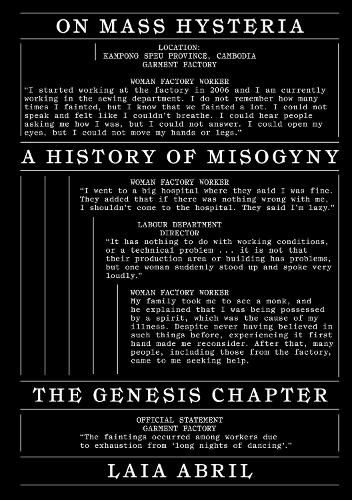Readings Newsletter
Become a Readings Member to make your shopping experience even easier.
Sign in or sign up for free!
You’re not far away from qualifying for FREE standard shipping within Australia
You’ve qualified for FREE standard shipping within Australia
The cart is loading…






In 'On Mass Hysteria', the genesis chapter of 'A History of Misogyny', Laia Abril visualises the historical and contemporary societal interpretations of outbreaks termed as 'mass hysteria', which are potentially cases of mass psychogenic illness - functional neurological disorders. Abril gives form to an anthropological theory viewing these psychosomatic outbreaks as a female proto-language of protest, triggered by oppressive systems, collective pain, and transgenerational trauma.
Abril interrogates Western society's views, including medical and academic analyses, that overlook female suffering, hypermedicalise women, and neglect alternative explanations from spiritual and Indigenous beliefs. The project seeks to redirect the narrative away from victim-blaming towards a critical examination of the role of societal and political oppression in manifesting collective illness.
$9.00 standard shipping within Australia
FREE standard shipping within Australia for orders over $100.00
Express & International shipping calculated at checkout
In 'On Mass Hysteria', the genesis chapter of 'A History of Misogyny', Laia Abril visualises the historical and contemporary societal interpretations of outbreaks termed as 'mass hysteria', which are potentially cases of mass psychogenic illness - functional neurological disorders. Abril gives form to an anthropological theory viewing these psychosomatic outbreaks as a female proto-language of protest, triggered by oppressive systems, collective pain, and transgenerational trauma.
Abril interrogates Western society's views, including medical and academic analyses, that overlook female suffering, hypermedicalise women, and neglect alternative explanations from spiritual and Indigenous beliefs. The project seeks to redirect the narrative away from victim-blaming towards a critical examination of the role of societal and political oppression in manifesting collective illness.